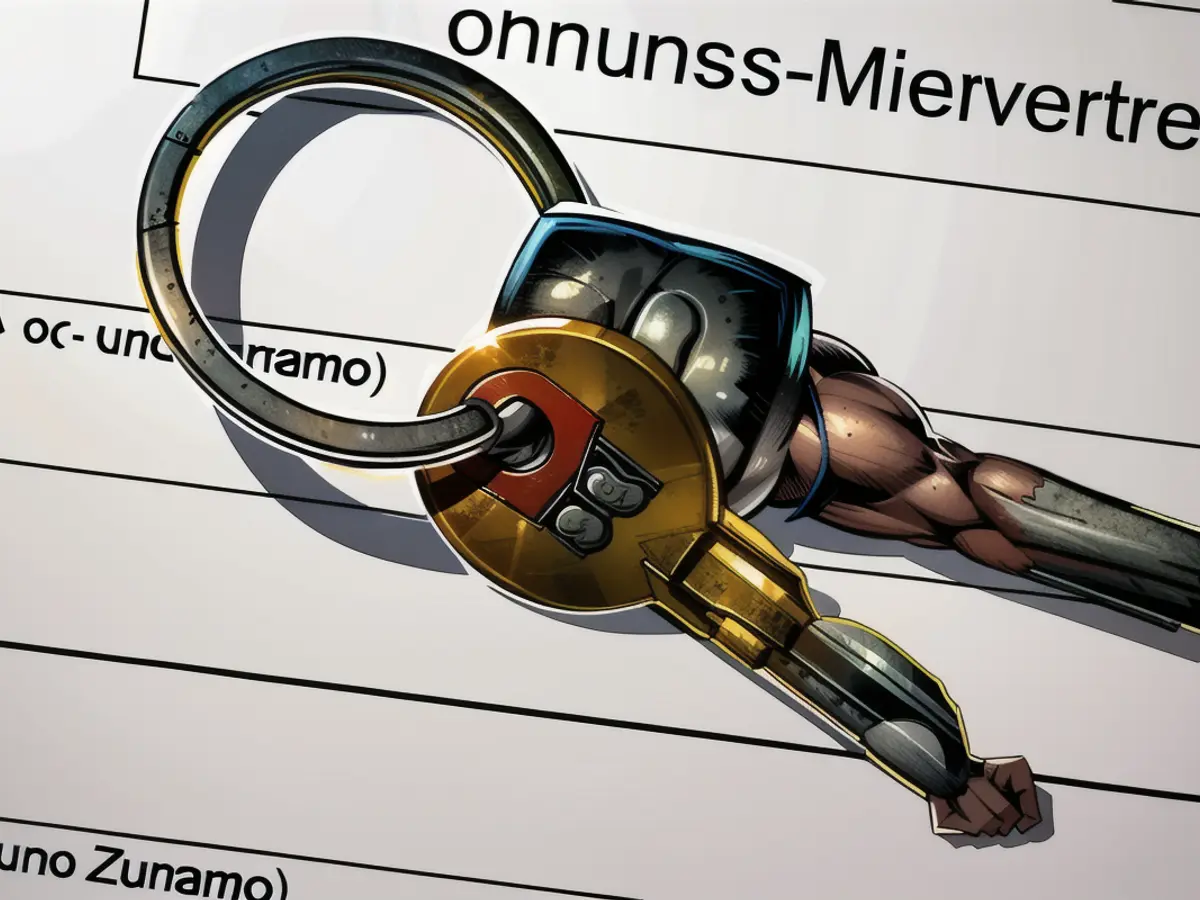Germany's Highest Rent Increases
Skyrocketing Rents in Germany: Berlin's Outskirts See 31.2% Increase, Potsdam Records Highest
Rental prices in Germany have seen a dramatic surge, with the outskirts of Berlin witnessing the largest increase at 31.2%. The federal government's response to a parliamentary request from the Left Party reveals this staggering rise. Potsdam, a region close to Berlin, has experienced a huge jump, following closely with a 26.7% uptick. Protests against these exorbitant rents and the federal government's housing policies have erupted, as reported by several thousand citizens over the weekend.
The demand for rental properties in popular areas has been growing for years, and this comes as no surprise. Germany's most populated cities, universities and other densely populated regions have witnessed
frustratingly limited rental availability, leading to a competitive and expensive rental market. However, the federal government's response to a Left Party MP's inquiry shows that rents are even escalating in lightly-populated regions, albeit on a relatively lower scale.
The data utilized comes from the Federal Institute for Building, Urban and Spatial Research (BBSR) and is based on the online supply of apartments ranging from 40 to 100 square meters. This excludes direct mediation through real estate agents or waiting lists.
Rental Costs in Sparsely Populated Regions
Remarkably, Germany's least populated district, Prignitz, is among the most rent-expensive regions, with a 18% escalation in listings between 2022 and 2023. Although it's still more cost-effective to live in Prignitz compared to most other areas, the average rent is about 7.08 euros per square meter, lower than the national average of 7.30 euros per square meter.
Besides Prignitz, two sparsely populated districts in Mecklenburg-Vorpommern have seen eye-popping rent increases. The Ostsee-Landkreis Vorpommern-Rügen, located by the Baltic Sea, recorded a nearly 20% boost in rents, and the Landkreis Vorpommern-Greifwald near the Polish border experienced more than a 15% hike. Alarmed by this development, the Left Party in the federal parliament highlights the need for public support in these areas where citizens have lower incomes.
Increased Expenses in Other Districts
In a similar vein, a 23.9% increase was observed in the Upper Palatinate district of Tirschenreuth, situated near the German-Czech border, although still relatively inexpensive at 6.86 euros per square meter. The districts of Kaiserslautern (19.9%) and Kaufbeuren (17%) in Bavaria, the Trier-Saarburg district (15%), and the Wunsiedel district in Bavaria's Fichtelgebirge (15%) have also experienced increasing rent values.
Berlin: Europe's Second Costliest Rental City?
The average rent for a typical apartment in Germany is pegged at 10.55 euros per square meter. However, renting in Berlin costs a whopping 16 euros, translating to Berlin becoming the second most expensive European city for rent. The Federal Bureau of Statistics confirms that rental prices have soared higher, with Munich taking the lead with a sky-high 20.50 euros per square meter. This significant price gulf draws stark contrasts, as Berliners earn considerably less on average compared to residents of Germany's capital.
Berlin's Fiscal Crisis
A recent study commissioned by the Berliners' Tenant Association asserts that a third of Berlin households are unable to afford a house on the market. Over 50% of all renting households in Berlin would receive government assistance like social housing vouchers because of their meager incomes. Mass protests in the city prompted protesters to demand that the authorities enact a nationwide rent cap and prohibit evictions and forced evictions. Left parliamentarian Lay underscores the relevance of these demands, noting the ineffectiveness of the rent brake.
The rent brake allows an increase of only 10% above the local comparison rent in principle for new contracts. This mechanism has apparently been failing to keep rental costs in check.
Read also:
- The Left Party, based in Germany, has expressed concerns about the rising rent costs in municipalities beyond Berlin and Potsdam, such as Western Pomerania-Rügen and Prignitz.
- The Federal Government's response to the Left Party's parliamentary request revealed that even sparsely populated regions, like Prignitz, have seen an 18% increase in rental listings.
- In Western Pomerania-Rügen, rent prices have grown by nearly 20%, making it more expensive to live in these areas compared to previous years.
- The federal parliament, in response to this trend, has highlighted the necessity of public support in districts like these, where residents have lower incomes and struggle with the new contract rent increases.
- The rental market in Berlin, already notorious for high prices, has surged even further, with weekly rents reaching 16 euros per square meter, making it the second most expensive city in Europe for living expenses.
- As a result, many Berlin households are unable to afford housing, and over half of all renters would require government assistance to meet their rent payments.
- Protests against the rising costs and the federal government's housing policies have become a common occurrence in Berlin, with citizens demanding a nationwide rent cap and an end to forced evictions.








